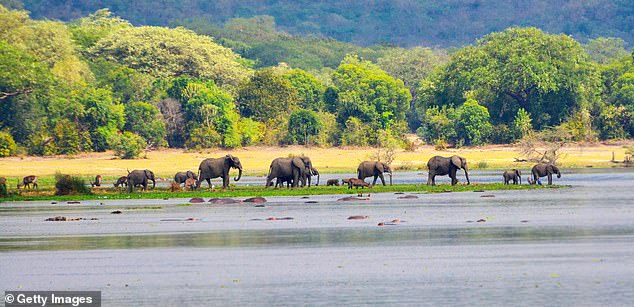Tanzania: End Mass Arrests and Arbitrary Detentions of Political Opposition
The Tanzanian authorities must urgently halt the mass arrests and arbitrary detention of government critics, Amnesty International said today, as intimidation of members of the political opposition intensifies in the run-up to local government elections in December and the general election in 2025.
On 11 August, Tanzanian police arrested and detained leading figures from Tanzania’s Party for Democracy and Progress, the main political opposition party known as Chama cha Demokrasia na Maendeleo (Chadema), including former presidential candidate Tundu Lissu and more than a hundred youth supporters, as well as five journalists for violating a ban on holding a youth conference. They were arrested during a meeting at Chadema’s Nyasa zonal office in Mbeya, southwest Tanzania, ahead of International Youth Day on 12 August.
The Tanganyika Law Society (TLS), the bar association of mainland Tanzania, said police also arrested 107 Chadema party members the same day in Iringa region in Nyasa zone, in the country’s southern highlands.
“The mass arrests and arbitrary detention of figures from the Chadema party, as well as their supporters and journalists, is a deeply worrying sign in the run-up to local government elections in December 2024 and the 2025 general election. The Tanzanian authorities must urgently respect people’s rights to freedom of expression and association,” said Sarah Jackson, Amnesty International’s Deputy Regional Director for East and Southern Africa.
Two eyewitnesses told Amnesty International that those arrested include Chadema vice chair, Tundu Lissu, secretary general, John Mnyika, Nyasa regional leader, Joseph Mbilinyi, and leaders of the party’s youth wing, Baraza la Vijana Cha Chadema (Bavicha). According to a party official, the leading figures were taken by police to unknown locations, while other party members and journalists were transported to various police stations in Mbeya.
The mass arrests and arbitrary detention of figures from the Chadema party, as well as their supporters and journalists, is a deeply worrying sign in the run-up to local government elections in December 2024 and the 2025 general election. Sarah Jackson, Amnesty International’s Deputy Regional Director, East and Southern Africa
The police later, on 12 August, arrested Chadema party chairman Freeman Mbowe and the Bavicha national leader John Pambalu at Songwe airport after they arrived from Dar es Salaam to follow up about other party leaders and members who had been arrested.
Chadema lawyers told Amnesty International that they had not been allowed by the Mbeya Regional Police Commander to know the whereabouts of the arrested individuals or information regarding the charges against them. The lawyers were however able to independently confirm that Joseph Mbilinyi was detained in Iringa Central Police Station.
The authorities have been restricting activities of the political opposition while allowing politicians from the ruling Chama cha Mapinduzi (CCM) party to meet unhindered.
“The Tanzanian authorities must urgently release all of those detained or charge them with a recognizable criminal offence, in line with international standards. If there are legitimate charges against any of the detainees, authorities must respect their rights to a fair trial, in line with international human rights law and standards, such as informing detainees of the reasons for their arrest, presenting them promptly before a judge, and granting access to legal counsel,” said Sarah Jackson.
The Tanzanian authorities must urgently release all of those detained or charge them with a recognizable criminal offence, in line with international standards.Sarah Jackson
“Ahead of the upcoming elections, Amnesty International calls on the Tanzanian authorities to respect, protect and fulfil the human rights of all people, including the rights to freedom of expression, association, and peaceful assembly. They must end arbitrary arrests and detention of political opposition members and reverse the escalating crackdown on civic space,” said Sarah Jackson.
Background
Samia Suluhu Hassan was sworn in as Tanzania’s first female president following the death of President John Pombe Magufuli on 17 March 2021.
While President Magufuli was in power, opposition politicians faced arbitrary arrest and detention — a trend that has continued under President Hassan.
On 21 July 2021, the police arrested opposition leader Freeman Mbowe and 11 other Chadema party officials and staff members at a hotel in Mwanza, northwestern Tanzania. They were arrested hours before a planned conference, in which party members would discuss demanding a new Cconstitution for the country. Although seven of them were released days after their arrest, Mbowe was only released more than seven months later, after the Director of Public Prosecution dropped terrorism charges against him and three others.
On 14 July 2023, lawyer and activist Boniface Mwabukusi and political activist Mdude Nyagali were arrested days after holding a press conference in Dar es Salaam, where they criticized a port deal between Tanzania and the United Arab Emirates (UAE). On 12 August 2023, they were re-arrested while travelling to Dar es Salaam and taken to the Central Police Station in the city of Mbeya. The next day, police arrested Willibrod Slaa, a former parliamentarian and diplomat, at his home in Dar es Salaam and took him to Mbweni Police Station. They faced treason charges but were released on 18 August 2023 under strict reporting conditions.
On 10 September 2023, police arrested Tundu Lissu for holding an “unlawful assembly” after he attended a political rally in Loliondo division, northern Tanzania.
On 11 August 2024, Tanzanian police raided a meeting at Chadema’s zonal office in Mbeya shortly after 6pm, during which party members were reportedly making plans for a youth rally the following day to mark International Youth Day.
Source: allafrica.com




















